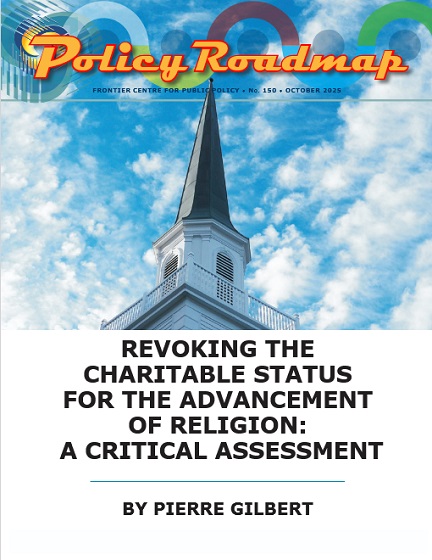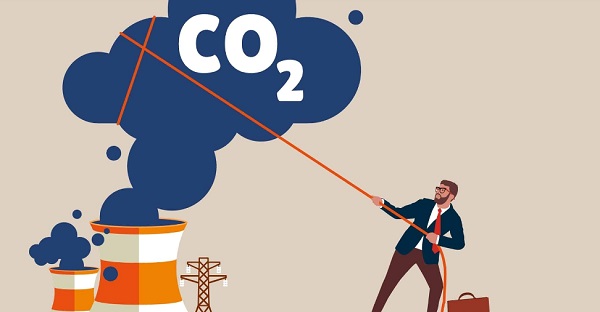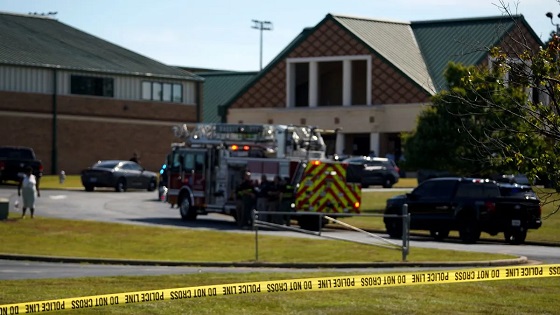Alberta
Alberta paving the way for newcomers to get to work

From the Government of Alberta: Ensuring fairness for newcomers
Bill 11, the Fair Registration Practices Act, will help newcomers get their credentials recognized, so they can quickly get to work in their fields to help grow the economy and create jobs.
The act is a key part of the government’s Fairness for Newcomers Action Plan.
Highly trained immigrant professionals can sometimes spend years jumping through regulatory hoops while their skills atrophy.
This can result in a significant loss of economic productivity for the Alberta economy. If passed, the Fair Registration Practices Act would cut red tape, remove barriers, speed up the process where possible, hold professional bodies accountable, and increase fairness and transparency.
“Our goal is to get all Albertans back to work. Too often, we hear stories of ‘doctors driving cabs’ syndrome – and we are taking action to make sure newcomers’ credentials are evaluated and assessed objectively and in a timely manner.” Jason Kenney, Premier
“It’s important for Alberta’s professional bodies to maintain high professional standards while allowing qualified newcomers to fully contribute to our economy. And not only that, giving newcomers the chance to pursue the careers they’ve trained for is, simply put, the right thing to do.” Jason Copping, Minister of Labour and Immigration
“The settlement sector in Alberta has been advocating for fair recognition of newcomer qualifications for decades. The proven detrimental impact of underemployment of newcomer professionals is felt not only within their own families, but throughout society as well. We are certain that fair recognition of credentials will improve the quality of life of all Albertans, and are grateful this legislation is being introduced so quickly by the new government.” Anila Lee Yuen, president & CEO, Centre for Newcomers
The proposed bill would:
- Provide the authority to create a Fair Registration Practices Office.
- Reduce the red tape associated with the assessment of foreign credentials.
- Work with regulators to ensure registration practices are transparent, objective, impartial and fair.
- Maintain Alberta’s high professional standards.
Bill 11 would require regulatory bodies to:
- Assess applications and communicate assessment decisions within specific time frames for interim registration decisions and within reasonable time frames for final registration decisions.
- Submit reports regarding fair registration practices to the minister responsible for the act.
“ASET is the regulator of engineering and geoscience technology practice in Alberta, and is committed to fully objective criteria for certification, and a level playing field for all applicants. Having long since adopted high standards of fairness in our admissions practices, ASET applauds the initiative for fair assessment of all applicants.” Barry Cavanaugh, CEO, Association of Science and Engineering Technology Professionals of Alberta
If passed, the legislation would come into force on proclamation.
Quick facts
- According to the Conference Board of Canada, Canadians would earn up to $17 billion more annually if their learning credentials were fully recognized.
- Immigrants are the largest group, with an estimated 524,000 international credential holders affected by a lack of learning recognition.
- Provinces such as Ontario, Manitoba and Nova Scotia already have fairness legislation to ensure that professional regulatory organizations have fair registration practices.
Alberta
Click here to help choose Alberta’s new licence plate design

Your province, your plate
For the first time in more than 40 years, Alberta is refreshing its licence plate with a Strong and Free motto, and the final look will be decided by Albertans.
From Oct. 15 until Nov. 5, Albertans can take part in a tournament-style online vote for a new provincial licence plate design that proudly reflects who we are every time we hit the road.
The new licence plate will be available in late 2026 and will be based on a “Strong and Free” theme, echoing the Latin motto of our province and reflecting Alberta’s bold identity, economic strength and deep-rooted provincial pride. The motto’s inclusion on the licence plates will also serve as a nod to Canada’s national anthem and Alberta’s position as a strong and sovereign province within a united Canada.
“From our wide-open landscapes to our entrepreneurial spirit, Alberta has so much to be proud of, and our new licence plate will reflect that pride. For the first time in four decades, Albertans will choose how we tell that story. I look forward to seeing which design is selected to show the world that this is the land of the strong and free.”
With options that include famous Alberta landmarks such as the Three Sisters Mountains, and long-standing symbols of our province’s core industries including agriculture and energy production, the potential plates each contain symbols of Alberta’s beauty, history and spirit.
In the first phase of voting, Albertans can vote for their favourite of eight unique concepts that incorporate Alberta’s unique landscape and history. Following the first phase, four designs will advance to the next round of voting where the top two will be selected, and subsequently, there will be a final vote for the winning plate concept. The winning new licence plate will be announced during the fall session of the legislature.
“Alberta is strong and free, and Albertans will have the opportunity to choose a new licence plate that captures that spirit. The new licence plate will be a fresh design that every Albertan will be proud to show off, whether they’re driving to work, heading to the lake or exploring North America.”
If an Albertan wants to replace their current plate for the new licence plate once it is released, they can voluntarily pay a $28 fee. Alternatively, Albertans could obtain a new plate on their vehicle registration renewal date at no additional cost. Motorists may also continue using the previous licence plate once the new licence plate is brought onboard, provided it is still in good condition.
Quick facts
- Alberta’s current licence plate was designed in 1984.
- In 2021, Alberta began a transition from painted to reflective plates with the same design.
- The new designs each incorporate reflective technology to improve readability for law enforcement and automated systems in low-light conditions, and also meet international standards for visibility, legibility and counterfeit resistance.
Related information
Licence plate designs. Click link above to vote
Alberta
Enbridge CEO says ‘there’s a good reason’ for Alberta to champion new oil pipeline

Enbridge CEO Greg Ebel. The company’s extensive pipeline network transports about 30 per cent of the oil produced in North America and nearly 20 per cent of the natural gas consumed in the United States. Photo courtesy Enbridge
From the Canadian Energy Centre
B.C. tanker ban an example of federal rules that have to change
The CEO of North America’s largest pipeline operator says Alberta’s move to champion a new oil pipeline to B.C.’s north coast makes sense.
“There’s a good reason the Alberta government has become proponent of a pipeline to the north coast of B.C.,” Enbridge CEO Greg Ebel told the Empire Club of Canada in Toronto the day after Alberta’s announcement.
“The previous [federal] government’s tanker ban effectively makes that export pipeline illegal. No company would build a pipeline to nowhere.”
It’s a big lost opportunity. With short shipping times to Asia, where oil demand is growing, ports on B.C.’s north coast offer a strong business case for Canadian exports. But only if tankers are allowed.
A new pipeline could generate economic benefits across Canada and, under Alberta’s plan, drive economic reconciliation with Indigenous communities.
Ebel said the tanker ban is an example of how policies have to change to allow Canada to maximize its economic potential.
Repealing the legislation is at the top of the list of needed changes Ebel and 94 other energy CEOs sent in a letter to Prime Minister Mark Carney in mid-September.
The federal government’s commitment to the tanker ban under former Prime Minister Justin Trudeau was a key factor in the cancellation of Enbridge’s Northern Gateway pipeline.
That project was originally targeted to go into service around 2016, with capacity to ship 525,000 barrels per day of Canadian oil to Asia.
“We have tried to build nation-building pipelines, and we have the scars to prove it. Five hundred million scars, to be quite honest,” Ebel said, referencing investment the company and its shareholders made advancing the project.
“Those are pensioners and retail investors and employees that took on that risk, and it was difficult,” he said.
For an industry proponent to step up to lead a new Canadian oil export pipeline, it would likely require “overwhelming government support and regulatory overhaul,” BMO Capital Markets said earlier this year.
Energy companies want to build in Canada, Ebel said.
“The energy sector is ready to invest, ready to partner, partner with Indigenous nations and deliver for the country,” he said.
“None of us is calling for weaker environmental oversight. Instead, we are urging government to adopt smarter, clearer, faster processes so that we can attract investment, take risks and build for tomorrow.”
This is the time for Canadians “to remind ourselves we should be the best at this,” Ebel said.
“We should lead the way and show the world how it’s done: wisely, responsibly, efficiently and effectively.”
With input from a technical advisory group that includes pipeline leaders and Indigenous relations experts, Alberta will undertake pre-feasibility work to identify the pipeline’s potential route and size, estimate costs, and begin early Indigenous engagement and partnership efforts.
The province aims to submit an application to the Federal Major Projects Office by spring 2026.
-

 Censorship Industrial Complex1 day ago
Censorship Industrial Complex1 day agoCanada’s privacy commissioner says he was not consulted on bill to ban dissidents from internet
-

 Energy2 days ago
Energy2 days agoIndigenous Communities Support Pipelines, Why No One Talks About That
-

 Alberta1 day ago
Alberta1 day agoEnbridge CEO says ‘there’s a good reason’ for Alberta to champion new oil pipeline
-

 Business1 day ago
Business1 day agoFormer Trump Advisor Says US Must Stop UN ‘Net Zero’ Climate Tax On American Ships
-

 Business2 days ago
Business2 days agoFinance Committee Recommendation To Revoke Charitable Status For Religion Short Sighted And Destructive
-

 Alberta2 days ago
Alberta2 days agoOil Sands are the Costco of world energy – dependable and you know exactly where to find it
-

 Health2 days ago
Health2 days agoColorado gave over 500 people assisted suicide drugs solely for eating disorders in 2024
-

 Alberta2 days ago
Alberta2 days agoThe Technical Pitfalls and Political Perils of “Decarbonized” Oil






